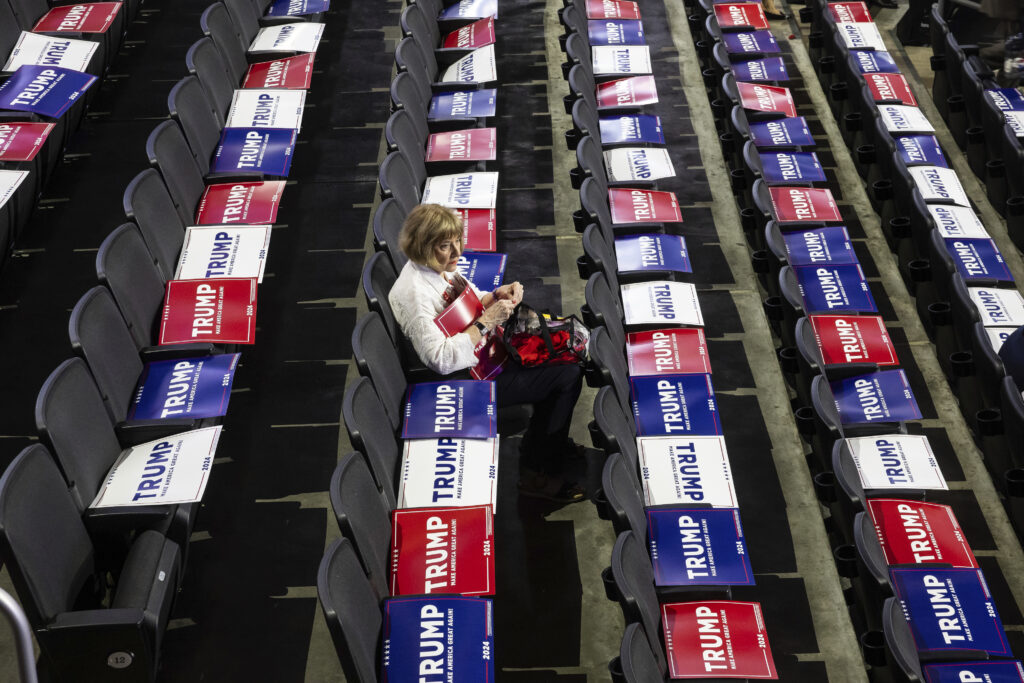In this post, Peter Greene continues his coverage of a teacher in West Ada, Idaho, who got into trouble for putting up a poster that showed different colored hands in the air and said “Everyone is Welcome Here.” District leaders said the poster was unwelcome because it violated federal guidelines that banished DEI, and had to be removed. Some didn’t object to the sentiment but objected to the portrayal of nonwhite hands.
Greene wrote:
Sarah Inama has put her poster up in a new classroom.
Inama, you may recall, is the 6th grade world history teacher told by her district bosses at West Ada School District that her “Everyone Is Welcome Here” poster, complete with hands of many human shades, would not be tolerated in the district. (I’ve been following this here, here, and here). West Ada is the largest district in Idaho, but their treatment of Inama has been spectacularly awful, both from an Awful Display of Racism standpoint, a Grotesque Mistreatment of Staff standpoint, and a Boneheaded PR Management standpoint.

Inama went to local news and the story blew up, delivering the shame that West Ada so richly deserved. We know a lot more thanks to some stellar reporting by Carly Flandro and the folks at Idaho Ed News, who FOIAed 1200 emails surrounding this and showcasing the board’s stumbling response. You should read the resulting stories (here and here).
The day after Inama was on the Today show, the district issued a memo entitled “Ensuring a Consistent and Supportive Learning Environment.” They decided to go with sports analogies. The Chief Academic Officer is a like a referee who enforces rules “to ensure a fair and level playing field.” And there’s this howler–
If one player decided to wear a different uniform, use a different-sized ball, or ignore the rules, the game would lose its structure, creating confusion and imbalance.
Then a report from BoiseDev that the Board of Trustees is considering making every teacher put up an “Everyone is welcome” poster– just without those multi-colored hands. Responding to BoiseDev, a district spokesperson explained:
Regarding the Everyone is Welcome Here posters, the district determined that while the phrase itself is broadly positive, certain design elements have been associated over time with political entities and initiatives that are now subject to federal restriction.
Inama told Idaho EdNews, “That’s appeasing not a political view, but a bigoted view that shouldn’t even be considered by a public school district.”
Inama was told the poster was divisive, that it was “not neutral,” that the problem was not the message, but the hands of v arious skin tones. Teachers shouldn’t have political stuff in the classroom. Inama nails the issue here
“I really still don’t understand how it’s a political statement,” she said. “I don’t think the classroom is a place for anyone to push a personal agenda or political agenda of any kind, but we are responsible for first making sure that our students are able to learn in our classroom.”
Some parents and students showed up at school to make chalk drawings in support. And yet many folks within and outside the district saw this as a divisive issue. How could anyone do that? Meet district parent Brittany Bieghler, who was dropping her kids off the day that parents were chalking the “Everyone is welcome here” message on the sidewalks.
“The ‘Everyone is Welcome’ slogan is one filled with marxism and DEI, there is no need for those statements because anyone with a brain knows that everyone is welcome to attend school, so there is no need to have it posted, written or worn on school grounds,” she wrote. “My family and I relocated here from a state that did not align with our beliefs and we expected it to be different here, but it seems as time goes by, its becoming more like our former state, which is extremely disheartening.”
“Anyone with a brain” might begin to suspect that everyone is not welcome here under these circumstances. And the school board itself couldn’t decide what to respond, drafting an assortment of emails that tried to show conciliation to those that were defiant and defensive, including one complaining in MAGA-esque tones that Inama was naughty for going to “new media.”
Imana resigned from her position, and by June the word was out that she was a new hire at Boise Schools. She told Idaho Ed News,
I’m so grateful to be able to work within a district that knows the beauty of inclusion and diversity and doesn’t for a second consider it an opinion but embraces it. As an educator, it’s an amazing feeling to know your (district’s) officials, board, and administrators fully uphold the fundamentals of public education and (have) the dignity to proudly support them. I really feel at home knowing we are truly all on the same team … and that’s a team that is rooting on all of our students.
Damned straight. And just last week, as reported by KTVB news, Inama posted video of herself putting up an “Everyone is welcome here” poster in her new classroom.
(To see the video, open the link.)
So the story ends well for Inama, and that’s a great thing. This is the sort of boneheaded administrative foolishness that can drive teachers out of the profession. The unfortunate part of the story is that up the road in West Ada schools, the administration, board and a non-zero number of parents think that challenging racism is bad and saying that students of all races are welcome in school is just one person’s opinion that shouldn’t be expressed openly in a school. Shame on West Ada.

